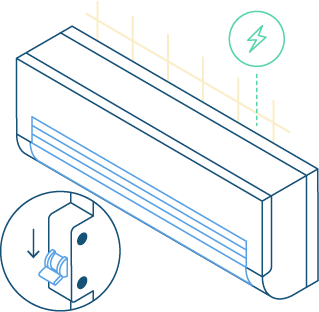
What's Electrical Panel?
Your electrical panel is like the heart of your home’s electrical system. It takes the energy from your utility or electrical provider and distributes it throughout your property to your plethora of electrical devices. If your electrical panel is out of date or fails you could be in danger of damage to your connected appliances, loss of power, or worse.
Why Do I Need To Upgrade My Electric Panel?
As a rule of thumb, electric panels need replacing every 25-40 years, so if your home is that age, there’s a likelihood that you will need to upgrade. However, there are other key signs to look out for that will tell you when your existing system is becoming outdated.

Faulty Wiring
When it comes to electricity and wiring within a home, safety is paramount. Faulty wiring is one of the leading causes of fires in American homes. Generally, the older wiring is, the more likely it is to be faulty, but having your electric panel inspected regularly by a professional electrician will identify any issues.
If you experience any of the following in your home, there is a strong chance it’s due to a fault in the wiring:





Installing New Appliances
One of the primary reasons for upgrading an electric panel is because it simply does not have the capacity to deal with modern appliances. If you are intending to install a major new appliance to your home (such as an air conditioner or hot tub), your existing electric panel may not suffice.
If you add an air conditioner without upgrading your electric panel, then the power provided by your electric panel might not be enough, and the circuit breakers will keep tripping.

Adding Circuit Breakers

As mentioned above, circuit breakers are a more modern version of fuses. Both function under the same principle – namely, that when the current in a circuit gets too high, they break the circuit, and prevent electricity from flowing. This provides a major safety feature within a home.
The key difference between a fuse and a circuit breaker is that fuses are single-use. They work by melting when the current is too high. Not only does replacing a fuse require additional effort comparing with resetting a circuit breaker, but also some fuses can actually be fire hazards. Home builders no longer install fuse boxes into homes.


If you have a fuse box in your home, then it is certainly worth investigating an upgrade. Not only do fuse boxes create additional safety concerns, but they could be a reason that home insurance companies refuse to cover your home (or pay out if you do get coverage).
